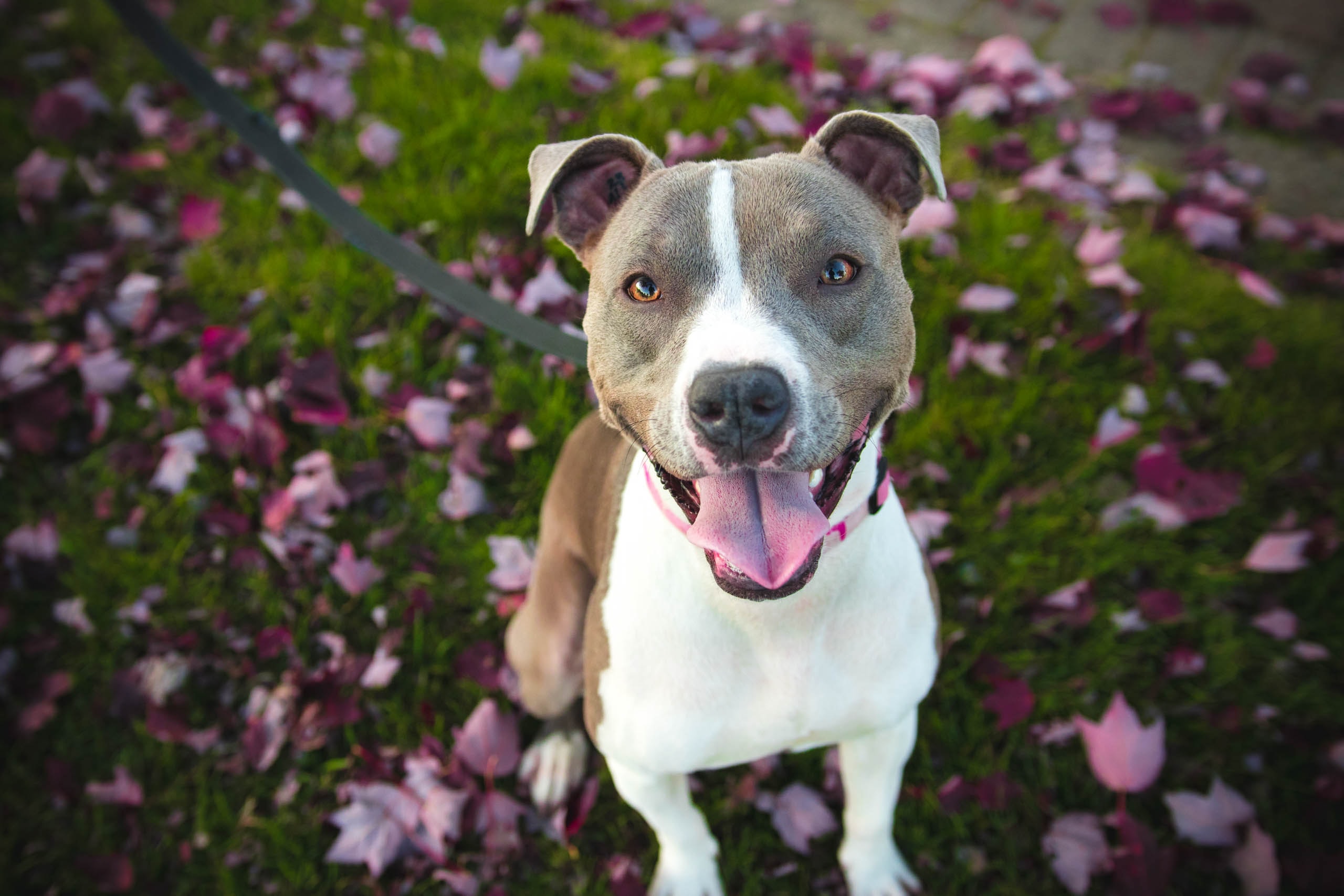What Does CBD do for Dogs? Data from 3 Surveys.
What does CBD do for dogs? If you’re a modern dog parent, there’s a good chance you’ve asked this question. At the same time, you’ve probably wondered if CBD is safe for dogs. The public’s embrace of CBD as a home remedy for people and their pets has taken the nation by storm. In this post, we’ve summarized the results of 3 well-designed surveys published in peer-reviewed journals that capture the real-world experience of pet parents and veterinarians.
Researchers at Colorado State University’s College of Veterinary Medicine, performed 2 surveys of pet parents and 1 survey of veterinarians about their use of CBD.
What Does CBD do for Dogs? A Survey of Pet Parents from 2015
In the first survey, conducted in 2015, nearly 700 participants were recruited via social media. Most of the people surveyed had used CBD oil for their dogs (58.8%) versus cats (11.9%). When asked whether they thought that the CBD was helpful to their pet, dogs were moderately or significantly helped by the oil. Pet parents reported their dogs experienced relief from pain, helping with sleep, and relieving anxiety. The most common side-effects noted were sedation and increased appetite.
In this survey, pet parents were asked to compare the CBD hemp product that they had been using with other forms of animal medication or therapy. 75% felt the product worked as well or better than any or most other therapies! Less than 10% felt that the CBD did not work as well as the conventional therapeutics.

What does CBD do for dogs? A Survey of Pet Parents from 2017.
In the second survey, conducted in 2017, dog owners were asked what they thought about the use of CBD products for their canine companions. Over a thousand dog parents, recruited via social media completed the survey. In addition to information about the demographics of the survey participants, questions were asked about what dog ailments were being treated with the CBD products. Side-effects were tabulated. Participants were also asked where they obtained information about hemp or cannabis products.
Dog parents purchased CBD products to help with the a number of conditions summarized below. They were also asked if the CBD product was more or less effective than the existing medications they were using for these same conditions:
- Pain relief (43.8% more effective)
- Anxiety (41.1% more effective)
- Reduce Inflammation (37.7% more effective)
- Thunderstorm or fireworks phobia (21.6% more effective)
- Help with sleep (22.2% more effective)
- Reduce nausea and vomiting (10.8% more effective)
- Help reduce muscle spasms (13.7% more effective)
- Help with epilepsy and seizures (more effective, exact data not available)
- Cancer (more effective, exact data not available)
- Arthritis (more effective, exact data not available)
- Allergies (more effective, exact data not available)
Is CBD Safe for Dogs? Pet Parents Report on Side Effects.
Dog parents were asked about perceived side-effects to the CBD oil or the hemp extracts they were using. The most common side-effects noted were sedation and lack of energy, followed by dry mouth (the classic cotton mouth from THC).
These side-effects are very uncommon with broad-spectrum hemp extracts, but not uncommon with full-spectrum and cannabis extracts with substantial amounts of THC in them.
- Sedation/Tired
- Lack of Energy
- Dry mouth/excessive drinking
- Over-active appetite
- Impaired mental functioning
- Dizziness
- Panic reactions
- Vomiting
- Loss of appetite
- Dry or red eyes
What Does CBD do for Dogs? A Survey of > 2000 Veterinarians.
The third survey asked veterinarians about their attitudes and knowledge regarding the use of CBD oil and cannabis extracts in their patients.
2130 veterinarians completed the survey in 2018. Veterinarians were asked a number of questions (below) to assess their knowledge and understanding of CBD products.
- Do you know the difference between CBD and “marijuana”? (20% know a lot; 57% know some; 22% have no idea or know very little)
- Do you know about the toxic effects of THC in dogs? (39% know a lot; 54% know some; 7.5% know very little to nothing)
- Do you know about the therapeutic effects of CBD products in dogs? (9% know a lot; 43.7% know some; 47.3% know nothing or very little)
- Do you know about the toxic effects of CBD products in dogs? (8% know a lot; 30% know some; 62.2% know nothing to very little)
When asked about their clinical experience with CBD products in dogs, slightly more than half indicated they had some experience, but 44% said they had no clinical experience with CBD products.
The vets were asked about clinical uses for CBD they had experience with, and whether the use of CBD for these problems was helpful or harmful using a 5 point numerical scale. This information is summarized in the table below, excerpted from the published paper using a 3 point scale derived from the 5 point scale.

Clinical Applications and CBD Perceived Benefit
| Condition | Helpful | No Effect | Harmful |
| Acute pain | 82.6% | 16.4% | 1.0% |
| Anxiety | 87.1% | 11.6% | 1.2% |
| Bacterial or Fungal Infections | 12.4% | 82.9% | 4.7% |
| Chronic pain | 90.6% | 8.3% | 1.1% |
| Diabetes mellitus | 15.4% | 78.8% | 5.8% |
| Diarrhea | 26.9% | 63.7% | 9.3% |
| Inhalant allergies (atopy) | 35.9% | 59.3% | 4.8% |
| Motion sickness | 77.6% | 20.5% | 1.7% |
| Seizure Frequency or Severity | 77.2% | 20.4% | 2.4% |
| Storm or Fireworks phobia | 73.3% | 24.0% | 2.6% |
| Vomiting | 56.7% | 39.1% | 4.2% |
Is CBD Safe for Dogs? Veterinarians Report on Side Effects.
When asked to record what side-effects the vets had observed when giving their patients CBD, the most common side-effect was sedation, which is more commonly a side-effect for THC versus CBD. Likewise, the second most common side-effect seen was increase in appetite, which is also more commonly associated with THC than CBD.
This survey occurred fairly early in the development of the pet CBD marketplace, and before broad-spectrum hemp extracts became more commonly available. It’s quite possible that the sedation and the increased appetite (polyphagia) were due to the effects of the THC in the products being used.
In 2018 when this survey was conducted, the experiences with the clinical uses of CBD by the veterinarians surveyed were gained in 2017. The quality control of CBD products available in 2016-2017 was pretty poor. It is possible that full-spectrum hemp products contained more than 0.3% THC which is the legal definition of a hemp extract. With excessive THC, these products would be more sedative and more likely to stimulate the appetite. As this was just a survey assessing perceptions, they did not analyze these CBD products for their THC content. In a recently published study measuring the amount of THC and CBD and other cannabinoids, terpenes and contaminants, it was found that all 29 of these products measured in 2019 were all compliant with the 0.3% THC upper limit mandated by law.
Side Effects of CBD for Common Canine Medical Conditions
| Side-Effect | Never | 1-25% | 26-75% | 76-100% |
| Anorexia | 92% | 7.1% | 0.6% | 0.3% |
| Bradycardia = Slow heart rate | 88.1% | 9.7% | 0.5% | 0.3% |
| Constipation | 97.3% | 2.2% | 0.5% | 0% |
| Diarrhea | 91.6% | 7.5% | 0.7% | 0.2% |
| Hypertension | 98.9% | 0.8% | 0.4% | 0% |
| Hypotension | 94.9% | 4.5% | 0.6% | 0.1% |
| Increased anxiety | 87.2% | 9.8% | 2.4% | 0.6% |
| Polydipsia = Increased thirst | 92.4% | 6.5% | 0.8% | 0.3% |
| Sedation | 48.8% | 41.4% | 8.1% | 1.7% |
| Seizures | 97.2% | 2.4% | 0.4% | 0.1% |
| Tachycardia= Fast heart rate | 93.8% | 5.4% | 0.9% | 0% |
| Vomiting | 90.9% | 8.1% | 0.9% | 0.2% |
From these studies, we can see that there are a number of things CBD can do for dogs, and although there are some side-effects, it generally appears to be safe for dogs and cats alike. Not all dogs and cats will respond to CBD, but the majority do seem to have minimal side-effects. Even more importantly, pet parents commonly reported a better response to the CBD oil than to the traditional medications they were using for the same or similar reasons.
To learn more about CBD for pets sign up for our newsletter and get 15% off your next order!








